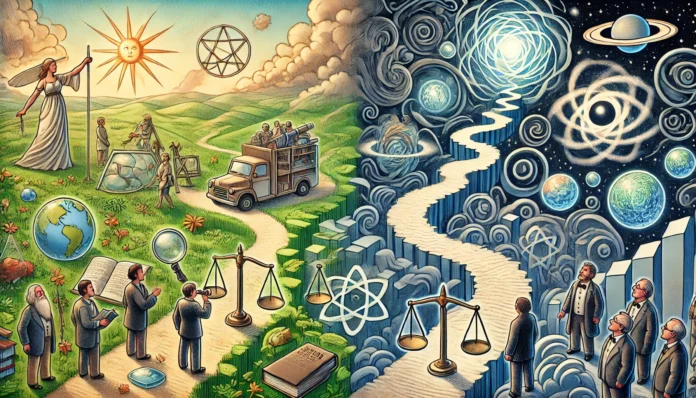Faith vs Reason: How Atheists Find Truth Without Religion
In a world where questions about existence, morality, and the universe abound, the divide between faith-based belief and evidence-based reasoning remains a central topic of debate. For atheists, the pursuit of truth is not guided by religious doctrine or faith, but by logic, science, and critical inquiry. This article explores how atheists navigate the search for truth, highlighting the contrast between faith and reason, and demonstrating the value of evidence-based thinking in understanding our world.
The Nature of Faith and Reason
Faith, in a religious context, is often defined as belief in something without empirical evidence or in spite of contrary evidence. It is a trust in doctrines, scriptures, or spiritual experiences that are not subject to verification. In contrast, reason is the application of logic and critical thinking to analyze information, draw conclusions, and solve problems. According to the Stanford Encyclopedia of Philosophy, reasoning involves the process of drawing inferences and making judgments based on evidence and rational principles.
Atheists typically reject faith as a reliable path to truth, instead prioritizing reason and evidence. This approach is rooted in the belief that claims about reality should be supported by observable, testable, and falsifiable evidence. The Internet Encyclopedia of Philosophy further explains that reason is essential for evaluating arguments, identifying fallacies, and distinguishing between justified beliefs and mere opinions.
Science as a Tool for Discovery
For atheists, science is the primary tool for uncovering the mysteries of the universe. The scientific method—characterized by observation, hypothesis, experimentation, and peer review—provides a systematic way to test ideas and eliminate errors. This process has led to remarkable advancements in our understanding of the cosmos, from the origins of life to the structure of the atom.
Unlike faith, which often relies on tradition and authority, science is inherently self-correcting. When new evidence emerges, scientific theories are revised or replaced. This commitment to ongoing inquiry and skepticism is a hallmark of the atheist approach to knowledge. As Nature reports, scientific progress depends on the willingness to question assumptions and embrace uncertainty.
Critical Thinking and Skepticism
Critical thinking is another cornerstone of the atheist worldview. It involves evaluating claims, identifying biases, and demanding evidence before accepting conclusions. Skepticism is not about cynicism or disbelief for its own sake, but about applying rigorous standards to all claims—religious or otherwise.
Organizations such as the Center for Inquiry and Skeptic Society promote critical thinking and scientific literacy, encouraging individuals to question extraordinary claims and seek reliable sources of information. This mindset helps atheists avoid common pitfalls such as confirmation bias, wishful thinking, and logical fallacies.
Morality Without Religion
One common misconception is that atheists lack a moral framework because they do not adhere to religious teachings. In reality, many atheists ground their ethics in reason, empathy, and the well-being of conscious beings. Secular moral philosophies, such as forms of humanism and consequentialism, emphasize the importance of evidence and rational deliberation in making ethical decisions.
Research published in Scientific American suggests that non-religious individuals are just as capable of moral reasoning as their religious counterparts. By focusing on the consequences of actions and the needs of others, atheists can develop robust ethical systems without recourse to divine command.
Community and Meaning Without Faith
Another stereotype is that atheism leads to nihilism or a lack of purpose. However, many atheists find meaning through personal relationships, creative pursuits, and the pursuit of knowledge. Secular communities, such as secular humanist organizations and atheist meetups, provide opportunities for connection, support, and shared values.
Studies, including those cited by the Pew Research Center, show that the number of people identifying as non-religious is growing, and many report high levels of life satisfaction and community engagement. This trend reflects a broader shift toward secularism and the recognition that meaning and fulfillment are not exclusive to religious belief.
The Ongoing Dialogue
The debate between faith and reason is unlikely to be resolved anytime soon. However, the atheist commitment to logic, evidence, and critical inquiry offers a compelling alternative to faith-based worldviews. By prioritizing facts over dogma and embracing the tools of science and reason, atheists continue to contribute to our collective understanding of reality.
As society becomes increasingly diverse and interconnected, the importance of open dialogue and mutual respect cannot be overstated. Whether one finds truth through faith or reason, the search for understanding remains a fundamental part of the human experience.

